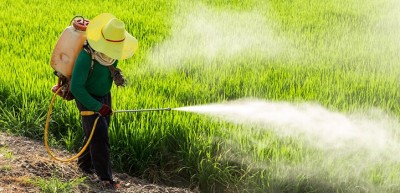Court in France Confirms Farmer Was Poisoned by Monsanto Herbicide
Poisoned by accidentally inhaling the fumes

An important precedence has been set by a recent ruling in French Court. Even after an appeals court heard a case which attested that a farmer was poisoned by accidentally inhaling the fumes of an herbicide, they still sided in favor of the farmer. Considering that the herbicide, though not its best seller, was made by Monsanto – this news is even more important.
Monsanto makes an herbicide, which like Roundup, is damaging to human health. It’s called Lasso, and its main ingredient is alachlor. When a farmer was exposed to this herbicide, he became grossly disabled with severe neurological disorders.
The French court in Lyon, upheld a previous ruling that the US biotech company, Monsanto, was liable for the farmers’ poisoning when he inhaled the herbicide while attending to corn crops.
The case was originally heard in 2012, and the farmer, Paul Francois, was to be fully compensated for becoming disabled due to Monsanto’s product when he inhaled the fumes accidentally on his farm in 2004.
The appeals ruling came this last week, when the courts condemned Monsanto, even though its lawyers argued that there was not enough evidence linking the farmer’s symptoms to the herbicide.
Francois claims that after inhaling the Lasso herbicide, he became nauseated, began stuttering, and suffered dizziness, headaches, and muscular aches that rendered him unable to work for a year. The risks are not outlined on the product’s label.
Monsanto also had to answer for keeping health-impairing Lasso on the market until 2007, despite bans of the product in Canada, Britain, and Belgium.
This is another nail in Monsanto’s coffin in France, since just last June the French Ecology Minister, Segolene Royal, announced a ban on over-the-counter sales of the Monsanto weedkiller Roundup.
Even more recently, Russia announced a game-changing move in the fight against Monsanto’s GMOs, completely banning the use of genetically modified ingredients in any and all food production. This is even more important when you consider the fact that many GMO crops are specifically made to withstand copious amounts of herbicides.

